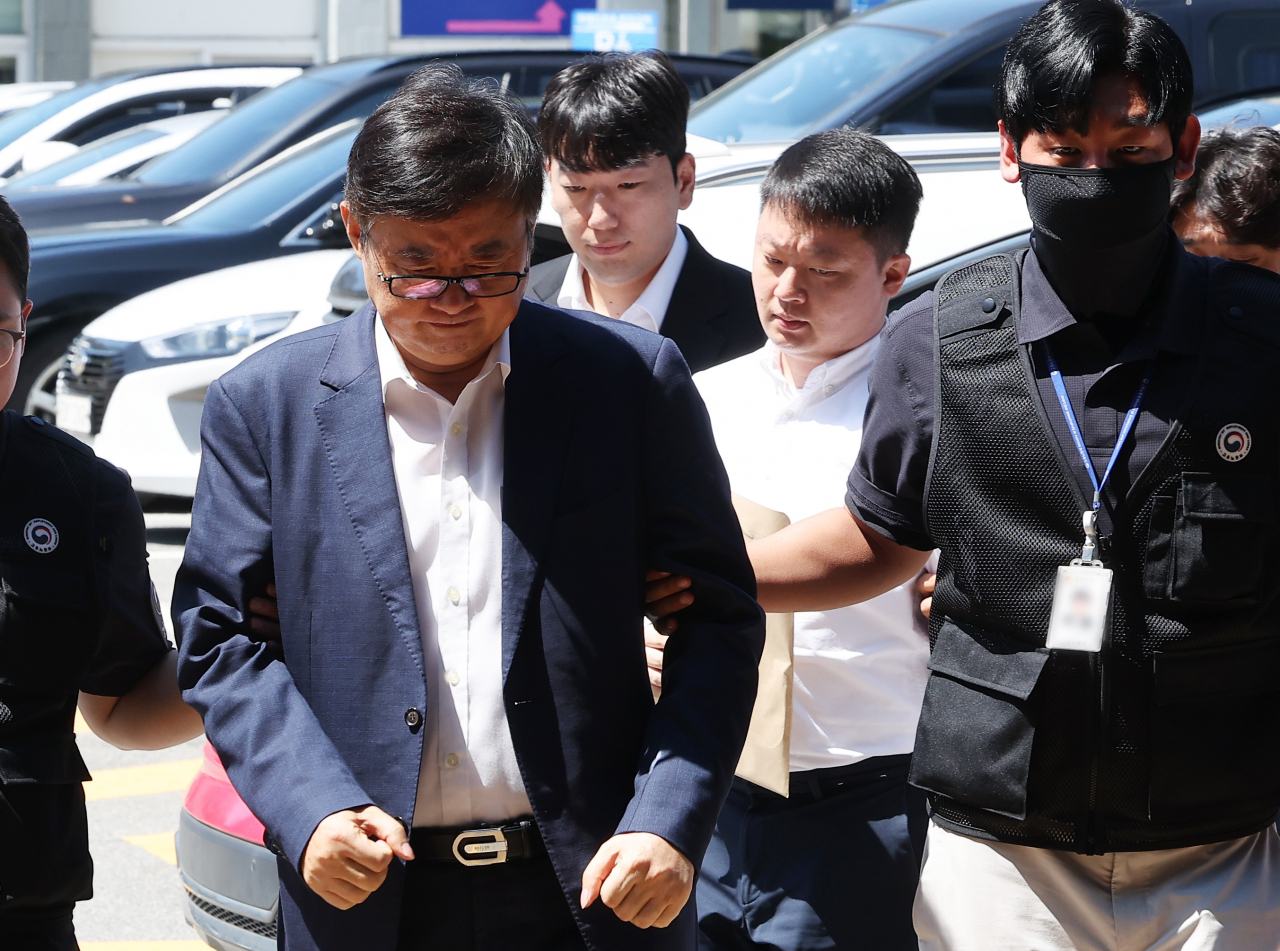 |
| A woman tests cosmetics products at an exhibition of women's clothing in Pyongyang, North Korea, in this photo released Thursday by the Choson Sinbo. Yonhap |
Thirst for better life gives rise to diverse cultural products as regime embraces change: study
By Jung Min-ho
Although many North Koreans still worry about how they will find their next meal, North Korea's growing middle class and their interest in consuming culture have given rise to more diverse goods and services in the country, as the regime embraces it as contributing to stability rather than as a threat, a recent study shows.
A study led by Jeong Eun-mi at the Korea Institute for National Unification shows middle-class North Koreans are becoming increasingly selective about what they eat and wear as well as how they spend their leisure time. Over the past 10 years and under Kim Jong-un's watch, the rise of such consumerism has become more visible, even though the coronavirus pandemic slowed the trend, she said.
"There are more varieties of rice at markets. Side dishes have become more diverse and middle-class North Koreans increasingly eat at restaurants or use delivery services," she said in the online seminar. "The lack of a power supply is still a hindrance for those who want to buy home electronics. But as more people find ways to get energy through solar power systems or individual contracts with nearby factories or substations, they are spending more money on such products."
Middle-class North Koreans' growing interest in culture has been reflected by North Korean media. In a rare move, the Rodong Sinmun, the mouthpiece of the ruling Workers' Party, has covered an exhibition for women's clothes five times this year, highlighting its "own culture and style."
Middle-class North Koreans' interest goes beyond the necessities of life: They are also investing more in education, health and entertainment. The study shows a rise in demand for vitamin, collagen and lactobacillus supplements as well as for children's vaccines and mobile video games.
Since its founding, North Korea has claimed to be a communist society, which should mean that there is a lack of class divisions, but it has never erased the concept of the middle class ― a term that can be found in its official documents ― from its dictionaries, defined as "the social class that has a relatively affluent way of life."
What has changed under young leader Kim Jong-un, however, is the media emphasizing the concept of a consumer more frequently. In Wednesday's paper, the Rodong Sinmun urged soap factory employees to consider "the consumer's point of view" when they work.
 |
| This photo released on Dec. 2 by Uriminzokkiri, a North Korean state-controlled news website, shows Songhwa Street in Pyongyang, North Korea. Yonhap |
Kim, who spent his teenage years in Switzerland, appears to have been interested in expanding the middle class, which he apparently thinks will be helpful for the stability of the regime, Jeong said.
"Yangdok Hot Spring Resort, Masikryong Ski Resort, Taedonggang Seafood Restaurant and Munsu Water Park are among the major leisure facilities opened under Kim. All middle-class North Korean defectors I had interviews with for the study told me that they used to visit such places once or twice a year," she said.
Based on what happened in China and Vietnam, communist states that have embraced consumerism for economic development, the middle class in North Korea is expected to build cordial relationships with the political ruling class, at least for many years to come, she said. Given the North Korean government's legal and technical efforts to adopt and promote electronic payment systems in recent years, she also believes the trend will likely continue.
"Kim has invested a great deal in construction projects. By presenting tangible examples with which people can fulfill their desires, he tries to motivate them, believing that they will help stabilize the regime," Jeong said.


 相关文章
相关文章




 精彩导读
精彩导读



 热门资讯
热门资讯 关注我们
关注我们
